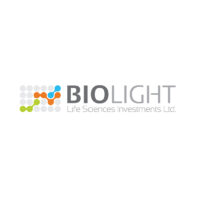
BioLight Israeli Life Sciences Investments (OTCQX: BLGTY; TASE: BOLT) has completed a second successful U.S. clinical study to assess the effectiveness of its TeaRx multi-assay test in evaluating tears’ components of healthy subjects as well as of patients suffering from dry eye syndrome (DES).
The study, conducted by development partner Ora Inc., enrolled 74 subjects in the U.S. All study subjects were evaluated using a composite of four established benchmark tests for the assessment of DES, used in previous FDA regulatory approval processes for other DES products, to define and distinguish populations of healthy subjects from those with different grades of DES.
Study subjects were also evaluated using TeaRx’s assays. The selected combination of TeaRx’s assays and the subjects’ demographics data were used to build a predictive statistical model as a mean to determine the combination assays, which provides the best TeaRx multi-assay test diagnostic power.
Study results demonstrated sensitivity of 86%, specificity of 87% and a positive predictive value of 87% for the TeaRx multi-assay test. The study results also demonstrated that the TeaRx multi-assay testing approach, which incorporates a combination of tear constituents originating from different locations in the eye, has the ability to provide a more robust diagnostic output than other already marketed DES tests.
In a statement, Suzana Nahum Zilberberg, BioLight’s CEO, said TeaRx allows for an in-office, multi-assay testing process which, for the first time, has the potential of going beyond the binary diagnosis of DES by also identifying sub-populations among those who suffer from the syndrome.
“We also believe that this will make us an attractive collaboration partner for pharmaceutical companies working to advance new DES therapies, steering clinical development end-points away from subjective signs and symptoms toward objective measurements,” she added.
Ms. Zilberberg said TeaRx also has the potential of becoming a valuable companion diagnosis tool to assist physicians in customizing treatment for DES patients.
“To those ends, these trial results will be used as a basis for discussion with global regulatory authorities, including the FDA, regarding the product approval process for this important test.”






